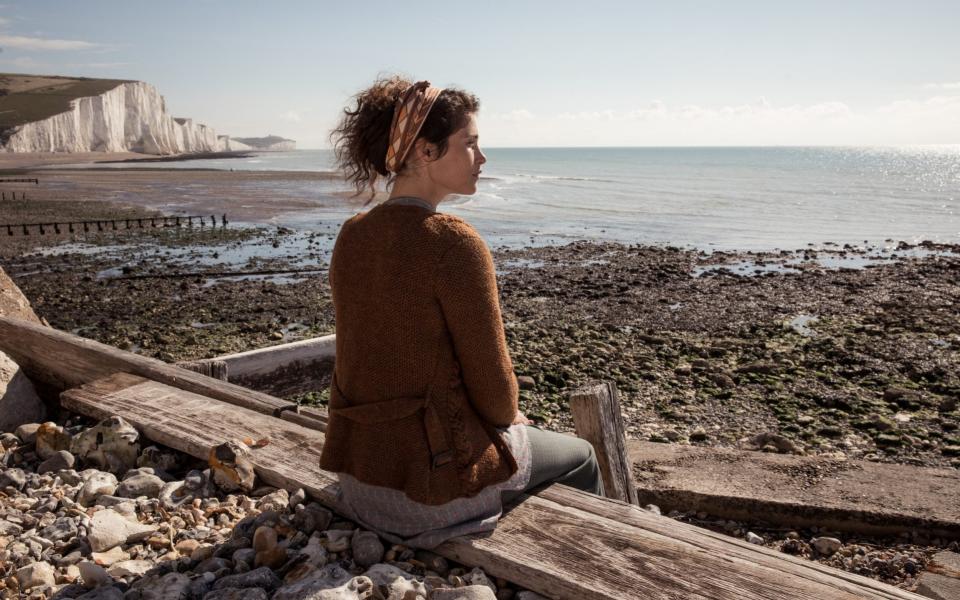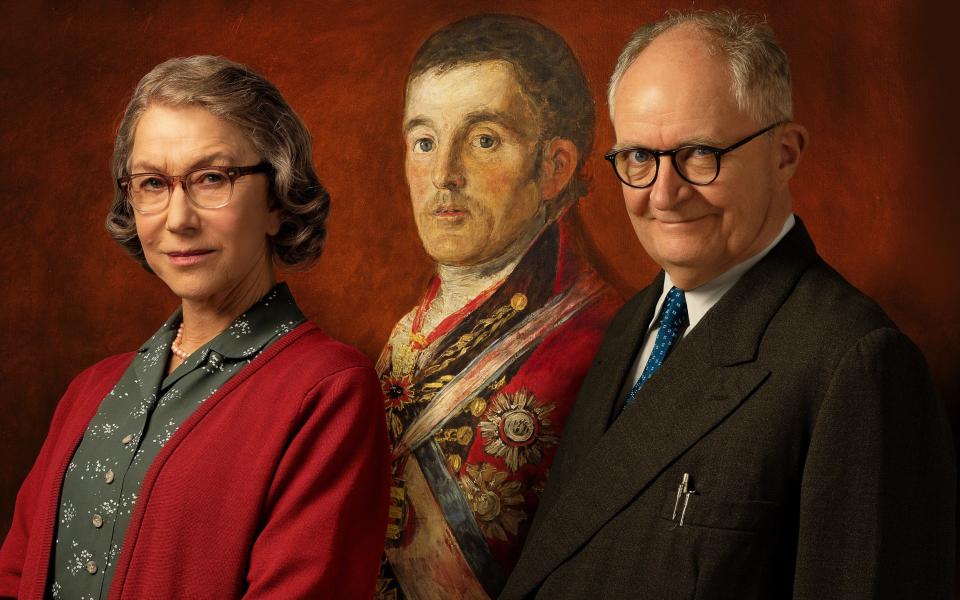Hollywood may be failing – but British cinema is seizing the throne

Hollywood’s great lumbering franchises have, like dinosaurs after a meteor shower, fallen temporarily silent. It is too soon to tell whether Covid-19 has truly hastened their extinction. But for now, amid scrambled release dates and shooting delays, they are conspicuous only by their absence. And in the ensuing hush, British film-makers are quietly, yet with imagination and fortitude, stealing a march.
At a time when so many of the UK’s creative industries are reeling, British cinema is experiencing a renaissance. What’s striking is the sheer diversity of talent emerging, like green shoots on a clear morning. There are exquisite character studies such as Harry Macqueen’s Supernova, in which Colin Firth and Stanley Tucci play a couple (one of whom has early onset dementia) travelling across England to reunite with friends and family.
Steve McQueen, whose traumatic Antebellum epic 12 Years A Slave won the Oscar for Best Picture, has meanwhile returned to his London roots for perhaps the most ambitious project of his career. With his Small Axe series of thematically-linked films co-produced by the BBC and Amazon – featuring John Boyega in his first major post-Stars Wars role – he tells the stories of a forgotten generation of black British civil rights activists.
Then there is the solid mainstream fare. In Jessica Swale’s Summerland, Gemma Arterton plays an emotionally closed-off writer in 1940s Kent whose capacity for human engagement is reawakened when she is entrusted with a young boy escaping the Blitz. It’s thoroughly feel-good yet shot through with a melancholy rare in any Hollywood equivalent. A similar sensibility infuses Roger Michell’s The Duke, in which Jim Broadbent plays a taxi driver who steals Goya’s portrait of the Duke of Wellington from the National Gallery in London and Helen Mirren is his exasperated wife. It’s based on a true story, from 1961, though glazed in uplifting treacle.
Cynics will tell you we’ve been here before and that nothing much resulted. After more than a decade in the doldrums, British cinema seemed to be gaining ground when, in 1982, Colin Welland declared that “the British are coming,” as he accepted one of the four Academy Awards claimed by Chariots of Fire. In fact, and despite the actor-screenwriter’s boast, the British stayed away. Instead, UK cinema in the 1980s operated as a puny sideshow to America’s blockbusters.

Worse yet, the British film industry would by that decade’s end end up a glorified Hollywood outhouse. Film-makers in France and Japan, for example, may not have been burning up the global box office. They were, however, making thoughtful and ambitious work, rooted in the local yet with a universal appeal.
British cinema, by contrast, was functioning as an incubator for Hollywood. From Star Wars to the Marvel saga, many of Hollywood’s biggest success were made at British studios such as Pinewood and Elstree, taking advantage of British technical wizardry behind the scenes. Yet the ones calling the shots – and reaping the profits – were invariably American.
American cinema, moreover, has exerted a siren call over the brightest and best. At the first sniff of acclaim the hottest young talents were booking a one-way trip to Los Angeles. That included auteurs such as Lynne Ramsey and Andrea Arnold, the latter travelling from the kitchen sink grit of Fish Tank to the gilded fitted kitchens of Big Little Lies. Hollywood represented a natural career progression rather than something to push back against. Only the seasoned talents of Mike Leigh and Ken Loach seemed happy to plough their own furrows, even though neither have received much external support from the UK industry at large.
There were purples patches, however. The “Cool Britannia” movement of the 1990s lifted up British cinema. In the process, it birthed worldwide hits such as Danny Boyle’s Shallow Grave and Trainspotting, and Guy Ritchie’s Lock Stock and Two Smoking Barrels. Natural Nylon, a production company formed by actors including Jude Law and Ewan McGregor, may not have produced a string of classics, but it did put cinema on the map as a creative nub.
Once again, alas, British film was a stepladder rather than a destination. Boyle was soon off to America working with Leonardo DiCaprio (The Beach) and Aaron Sorkin (Steve Jobs). And just last year, Ritchie was putting his talent at the service of Disney and its live-action Aladdin remake. Contrast this scramble to plant a flag in Burbank, with South Korea’s Bong Joon-ho, whose Oscar-success with Parasite vindicated his commitment to Korean cinema and to producing art grounded in the society he knew best.
That’s arguably where the new generation of British filmmakers differ from their predecessors. They seem less eager to catch the next flight to Hollywood. Instead they have demonstrated a determination to grounding their careers in a uniquely British sensibility.
In London-set coming of age story, Rocks, for instance, director Sarah Gavron and playwright Theresa Ikoko engage heartwarmingly with the growing pains of black and Asian teenagers. The appeal is universal. Yet Rocks could only have been made in London.
There are goosebumps aplenty, too, in the new cinematic landscape. However, these are no production-line Hollywood scares. Saint Maud, Rose Glass’s creep-show interrogation of religious obsession, is shot largely in Scarborough and draws on the director’s memories of half-deserted seaside towns in her native Essex.
That same distinct uncanniness is conjured with in Claire Oakley’s Make Up. A young woman gets more than she bargained for when joining her boyfriend in a caravan park in Cornwall. In many countries, a psychological horror set in a caravan park would feel absurd. But there is something uniquely unnerving about a British resort on the quiet day, the sky grey, the waters placid. Oakley drills masterfully into that psychosphere.
As the future remains uncertain for cinemas and thus even for proven money spinners such as the Marvel and Star Wars movies, British cinema is seizing the opportunity.
The difference is that, unlike 1982 and the Chariots of Fire speech, there is no suggestion of seeking to conquer the world. The British are not “coming” over the hills as an army. And yet, as we attune to the “New Normal”, there is every reason to believe that the renaissance in independent UK filmmaking is here to stay.

